Effective Change

What are some effective ways to teach children about climate change ?
Teaching children about climate change is crucial for their future and the planet's well-being. Here are some effective ways to educate them on this important topic: 1. Use age-appropriate language that they can understand, avoiding complex scientific terms. 2. Incorporate interactive learning through games or experiments that demonstrate the effects of climate change. 3. Discuss real-life examples of climate change, such as extreme weather events like hurricanes, floods, and droughts. 4. Encourage critical thinking by asking open-ended questions about climate change and encouraging problem-solving skills. 5. Involve children in solutions by participating in community clean-up events, planting trees, or reducing energy consumption at home. 6. Integrate technology through educational apps, videos, and websites that provide engaging and informative content on climate change. 7. Foster empathy for nature by encouraging children to spend time outdoors and appreciate the beauty of the natural world. By using these effective methods, we can help children understand the importance of protecting our planet and inspire them to take action against climate change.

What are the most effective ways to educate people about climate change ?
Effective Ways to Educate People about Climate Change Educating people about climate change is crucial for creating awareness and driving action towards a sustainable future. Here are some effective ways to educate people about this pressing issue: 1. Visual Aids and Multimedia 2. Educational Workshops and Seminars 3. Narrative Storytelling 4. Social Media Campaigns 5. Policy Advocacy and Public Engagement

How effective is geoengineering in combating climate change ?
Geoengineering, the large-scale manipulation of the environment to combat climate change, has potential benefits and risks. It includes methods like Solar Radiation Management (SRM) and Carbon Dioxide Removal (CDR), which could theoretically offset global warming and lower atmospheric CO2 levels, respectively. However, geoengineering is not a solution to the root cause of climate change, carries uncertain side effects, and raises equity and ethical concerns. Its effectiveness is also yet to be proven at a relevant scale. Therefore, while research into geoengineering should continue with caution, it should not replace the urgent need for global greenhouse gas emission reduction and adaptation strategies.
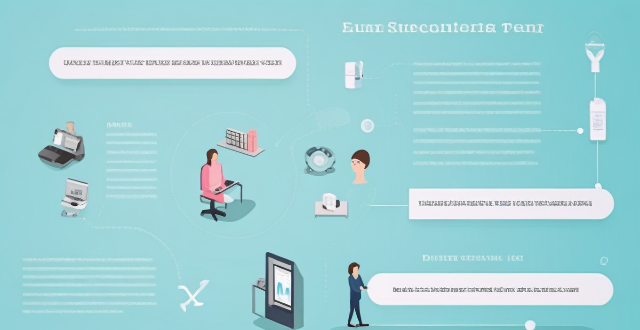
Can studying the psychological effects of climate change help in developing more effective adaptation strategies ?
This article explores how understanding the psychological effects of climate change can contribute to developing effective adaptation strategies. It outlines key areas such as impact on mental health, influence on behavioral change, public perception and awareness, community resilience, and policy making processes. By addressing these areas, it is possible to create more resilient and sustainable communities in the face of climate change.

What are some effective strategies for teaching climate change to young children ?
Teaching climate change to young children can be a daunting task, but it is crucial to help them understand the impact of their actions on the environment. Here are some effective strategies for teaching climate change to young children: Start with simple explanations, use visual aids, encourage hands-on learning, involve them in environmental activities, use storytelling, discuss solutions, make it relevant to their lives, and encourage critical thinking.

Are there any natural or eco-friendly disinfection solutions that are effective against viruses ?
The article discusses natural and eco-friendly disinfection solutions that are effective against viruses. It mentions four options: lemon juice and salt, white vinegar, tea tree oil, and hydrogen peroxide. Each option has a procedure for use and is effective in killing germs on surfaces. The article concludes that while these solutions may require more time and effort compared to chemical disinfectants, they offer a safer alternative for those concerned about environmental impact and health risks associated with harsh chemicals.

What are some effective ways to reduce under-eye bags and dark circles ?
Under-eye bags and dark circles can be a bothersome issue for many individuals. They are often caused by factors such as lack of sleep, stress, aging, and genetics. Fortunately, there are several effective ways to reduce these problems and improve the appearance of the under-eye area. In this article, we will discuss some of the most effective methods to achieve this goal.

What are some examples of successful educational games and what makes them effective ?
Educational games have become popular for engaging students and making learning enjoyable. Successful examples include Minecraft: Education Edition, Kahoot!, Osmo Genius Kit, and CodeCombat. These games are effective due to their engagement, adaptability, immediate feedback, collaboration, and real-world application. Incorporating these elements can create a more enjoyable and effective learning experience.

Can national governments alone tackle the issue of climate change, or is international cooperation necessary for effective global climate governance ?
Climate change is a complex issue that requires global cooperation to effectively tackle. While national governments can implement policies and invest in research within their borders, the interconnectedness of climate change factors necessitates international collaboration. Global agreements, technology transfer, and financial support are crucial components of this cooperation. Ultimately, a combination of national efforts and international partnerships is needed for effective climate governance.

How effective has the United Nations Framework Convention on Climate Change (UNFCCC) been in addressing global climate change ?
The United Nations Framework Convention on Climate Change (UNFCCC) is a global treaty adopted in 1992 to stabilize greenhouse gas concentrations and prevent dangerous interference with the climate system. While it has achieved some successes, such as promoting international cooperation and establishing mechanisms for climate finance and technology transfer, its effectiveness has been limited by factors like lack of compliance and political will. To make a significant impact on global climate change, stronger commitment and concrete actions from all parties involved are necessary.

How can I find reliable and effective programming tutorials online ?
Finding reliable and effective programming tutorials online can be a daunting task, especially for beginners. However, with the right approach and tools, you can easily find high-quality resources that will help you learn programming effectively. Here are some tips on how to find reliable and effective programming tutorials online: 1. Identify Your Learning Goals 2. Use Reputable Sources 3. Look for Reviews and Ratings 4. Check for Updates and Maintenance 5. Practice and Apply What You Learn

What are the key characteristics of effective sports leadership ?
Effective sports leadership is crucial for the success of any team or organization. It involves a combination of skills, traits, and behaviors that enable leaders to inspire, motivate, and guide their athletes towards achieving their goals. Here are some key characteristics of effective sports leadership: 1. Visionary and Strategic Thinking 2. Communication Skills 3. Motivational Abilities 4. Emotional Intelligence 5. Decision-Making Skills 6. Accountability and Responsibility
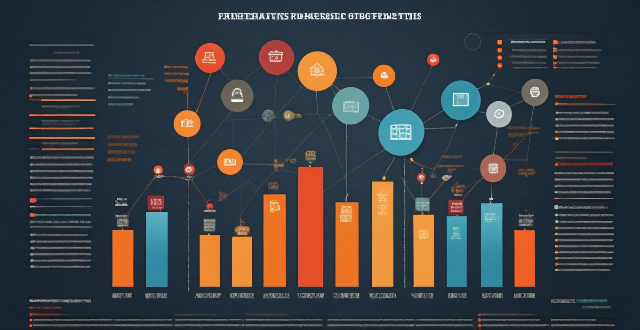
What are the key elements of an effective infographic ?
An effective infographic should convey complex information in a clear, concise, and visually appealing manner. The key elements of an effective infographic include a clear purpose, concise and relevant information, visual hierarchy, compelling visuals, consistent design, interactive elements (optional), call to action (CTA), and accessibility. By incorporating these key elements, you can create an effective infographic that not only looks good but also effectively communicates its intended message to the target audience.

How do I create an effective study plan ?
Creating an effective study plan is crucial for academic success. Here are some steps to help you create a successful study plan: 1. Set clear goals that are specific, measurable, achievable, relevant, and time-bound (SMART). 2. Assess your time and determine how much you can realistically dedicate to studying each day/week. 3. Allocate time for each subject based on difficulty level and proficiency. 4. Create a schedule using a calendar or planner and stick to it as much as possible. 5. Incorporate short breaks during study sessions to avoid burnout and maintain focus. 6. Regularly review progress and adjust the study plan accordingly. 7. Eliminate distractions by finding a quiet place to study and turning off unnecessary devices. 8. Stay motivated by reminding yourself of goals and celebrating small achievements. 9. Seek help when needed from teachers, tutors, or classmates. By following these steps, you can create an effective study plan that will help you achieve academic success while managing your time efficiently. Remember to stay flexible and adjust your plan as needed to accommodate changes in your schedule or priorities.

What types of workouts are most effective for weight management ?
The most effective workouts for weight management include aerobic exercise, strength training, high-intensity interval training (HIIT), flexibility and stability training, and combination workouts. Aerobic exercises are great for burning calories and improving cardiovascular health, while strength training helps increase metabolism and prevent injury. HIIT is incredibly effective at burning calories in a short amount of time and boosting metabolism. Flexibility and stability training focus on improving range of motion, balance, and core strength. Combination workouts incorporate multiple types of exercise into one session, providing the benefits of each while keeping workouts interesting and challenging. The most effective workout for weight management is one that you enjoy and can stick to consistently over time, paired with a healthy diet for optimal results.

What are the potential risks of climate change for the insurance sector ?
Climate change poses significant threats to the insurance sector, including increased natural disasters, changes in liability exposures, property value fluctuations, and regulatory/legal changes. Insurers must adapt by assessing risks, updating policies, and collaborating with governments to create effective strategies.

What is the most effective workout routine for losing belly fat ?
The most effective workout routine for losing belly fat depends on individual factors such as age, fitness level, and overall health. Popular routines include HIIT (high-intensity interval training), strength training, and cardiovascular exercises. Tips for making these routines more effective include starting with a warm-up period, choosing enjoyable exercises that can be done for at least 30 seconds each, resting for 1-2 minutes between each burst of exercise or set of exercises, completing 3-4 sets of each exercise, and including at least one day of rest per week to allow muscles to recover.

What role do scientists play in shaping climate change legislation ?
Scientists play a crucial role in shaping climate change legislation by providing evidence-based research, influencing policy development, and educating the public and raising awareness about the issue. Their expertise helps policymakers understand the severity and potential consequences of climate change, identify patterns and predict future scenarios, assess impacts on ecosystems and human health, advise on effective strategies for addressing climate change, testify before government bodies, participate in public forums and debates, publish scientific papers and reports, collaborate with media outlets, and participate in educational programs and workshops.
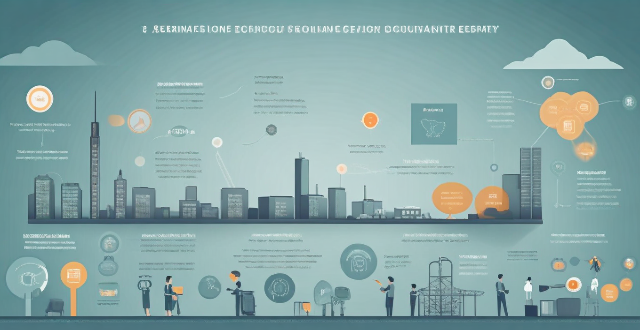
How can climate services support policy making for climate change ?
Climate services support policy making for climate change by providing scientific evidence, assessing impacts and risks, informing mitigation strategies, enhancing capacity building, and facilitating international cooperation. They provide decision-makers with relevant, timely, and reliable information on the state of the climate system, its variability, and its future projections. This information is essential for developing effective policies to mitigate and adapt to the impacts of climate change.

Are there any specific types of exercises that are more effective for stress relief ?
There are several types of exercises that have been shown to be particularly effective for reducing stress and promoting relaxation, including aerobic exercise, yoga, tai chi, resistance training, and meditation. These activities can help to release endorphins, improve cardiovascular health, increase flexibility and strength, provide a sense of accomplishment, and quiet the mind, all of which can contribute to lower stress levels and improved mental well-being.

How does climate change affect the priorities in environmental monitoring ?
Climate change significantly impacts the priorities in environmental monitoring by necessitating a focus on rising sea levels, extreme weather events, changes in biodiversity, impacts on agriculture and food security, and air quality issues. Addressing these challenges requires a comprehensive approach that incorporates regular monitoring, early warning systems, adaptation strategies, and effective conservation planning.

What are the most effective strategies for adapting to climate change ?
Adapting to climate change is vital for survival and well-being. Effective strategies include building resilient infrastructure, enhancing ecosystem resilience, promoting sustainable agriculture, developing climate-resilient communities, investing in research and innovation, and strengthening governance and policy. These measures will help societies withstand climate challenges and ensure a sustainable future.
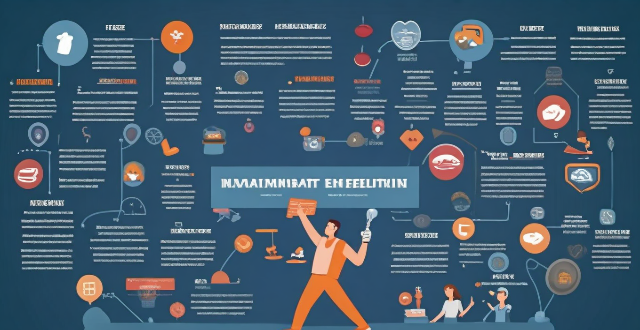
Are there specific types of sports that are more effective in preventing internet gaming addiction ?
The article discusses the issue of internet gaming addiction and how sports can be an effective solution. It explains the benefits of physical activity, including improved health and social connections, which can help prevent addiction. The article then lists four types of sports that are particularly effective in preventing addiction: outdoor adventure sports, team sports, individual sports with goals, and yoga/mindfulness practices. Overall, the article emphasizes the importance of engaging in physical activities to promote a healthy lifestyle and combat addiction.

How effective are international agreements like the Paris Agreement in addressing climate change ?
The Paris Agreement, adopted in 2015, is a significant international accord aimed at addressing climate change by limiting global warming. It has several positive aspects such as creating political momentum, raising public awareness, encouraging technological innovations, and promoting green finance. However, it also faces challenges like ambiguous targets, lack of enforcement, insufficient funding, equity concerns, and conflicts with economic interests. The effectiveness of the agreement depends on the commitment and action of its signatories, cooperation among nations, strength of Nationally Determined Contributions (NDCs), and follow-through on financial and technical support.

What are the most effective ways to engage children in climate change discussions ?
Engaging children in climate change discussions is crucial for raising awareness and fostering a sense of responsibility towards the environment. Here are some effective ways to do so: Use age-appropriate language, incorporate visual aids, encourage participation, and make it relevant to their lives.

What are the most effective actions citizens can take to combat climate change ?
Climate change is a pressing issue that requires immediate action. Here are some effective actions individuals can take to combat climate change: 1. Reduce Energy Consumption: Switch to energy-efficient appliances, use renewable energy sources, improve insulation, and unplug electronics when not in use. 2. Reduce Water Usage: Fix leaks, install low-flow fixtures, and collect rainwater for non-potable uses. 3. Reduce Waste: Compost food scraps, recycle materials, and buy used items to reduce manufacturing emissions. 4. Use Public Transportation or Carpool: Use public transportation, carpool with friends or coworkers, and bike or walk for short trips instead of driving. 5. Support Clean Energy Policies: Vote for candidates who support clean energy policies, contact elected officials, and join advocacy groups working to promote clean energy policies.

What are some potential solutions to combat climate change ?
Potential Solutions to Combat Climate Change

How can education help combat climate change ?
Education is a powerful tool in the fight against climate change by fostering awareness, promoting sustainable practices, stimulating innovation, and shaping policy. It empowers individuals to make informed decisions and advocate for environmental protection through comprehensive science education, applied learning experiences, interdisciplinary research, and civic engagement. By integrating sustainability into curricula and encouraging global perspectives, education prepares future generations to tackle the complex challenges of climate change effectively.
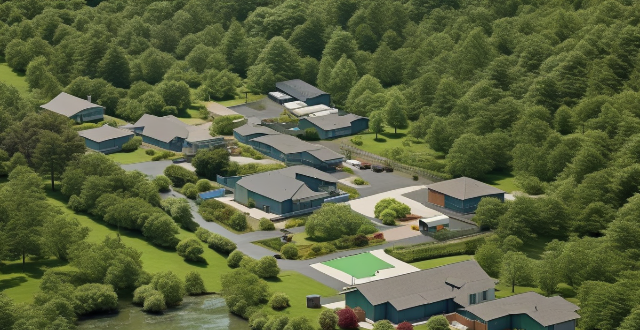
What are the key provisions of the latest climate change legislation ?
The latest climate change legislation is a comprehensive package of measures aimed at addressing the challenges posed by global warming and climate change. The key provisions include reduction of greenhouse gas emissions, adaptation to climate change impacts, international cooperation and leadership, just transition for workers and communities, and transparency and accountability.
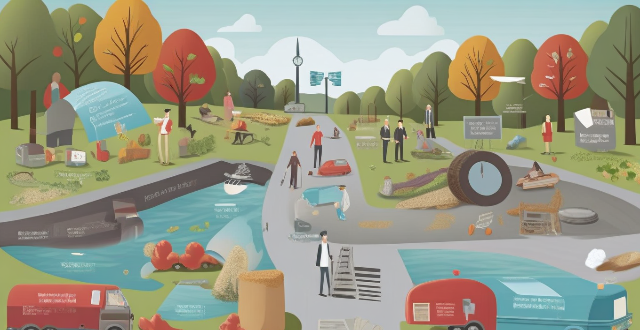
What are the implications of climate change negotiations for future generations ?
The implications of climate change negotiations for future generations are significant and multifaceted, affecting various aspects of life, including the environment, economy, society, and politics. Effective negotiations can lead to preserved natural ecosystems, mitigation of extreme weather events, job creation in renewable energy sector, reduction in energy costs, improved public health, enhanced quality of life, global cooperation, and leadership and innovation. These benefits highlight the importance of prioritizing the interests of future generations in climate change negotiations to ensure a sustainable and equitable world for all.